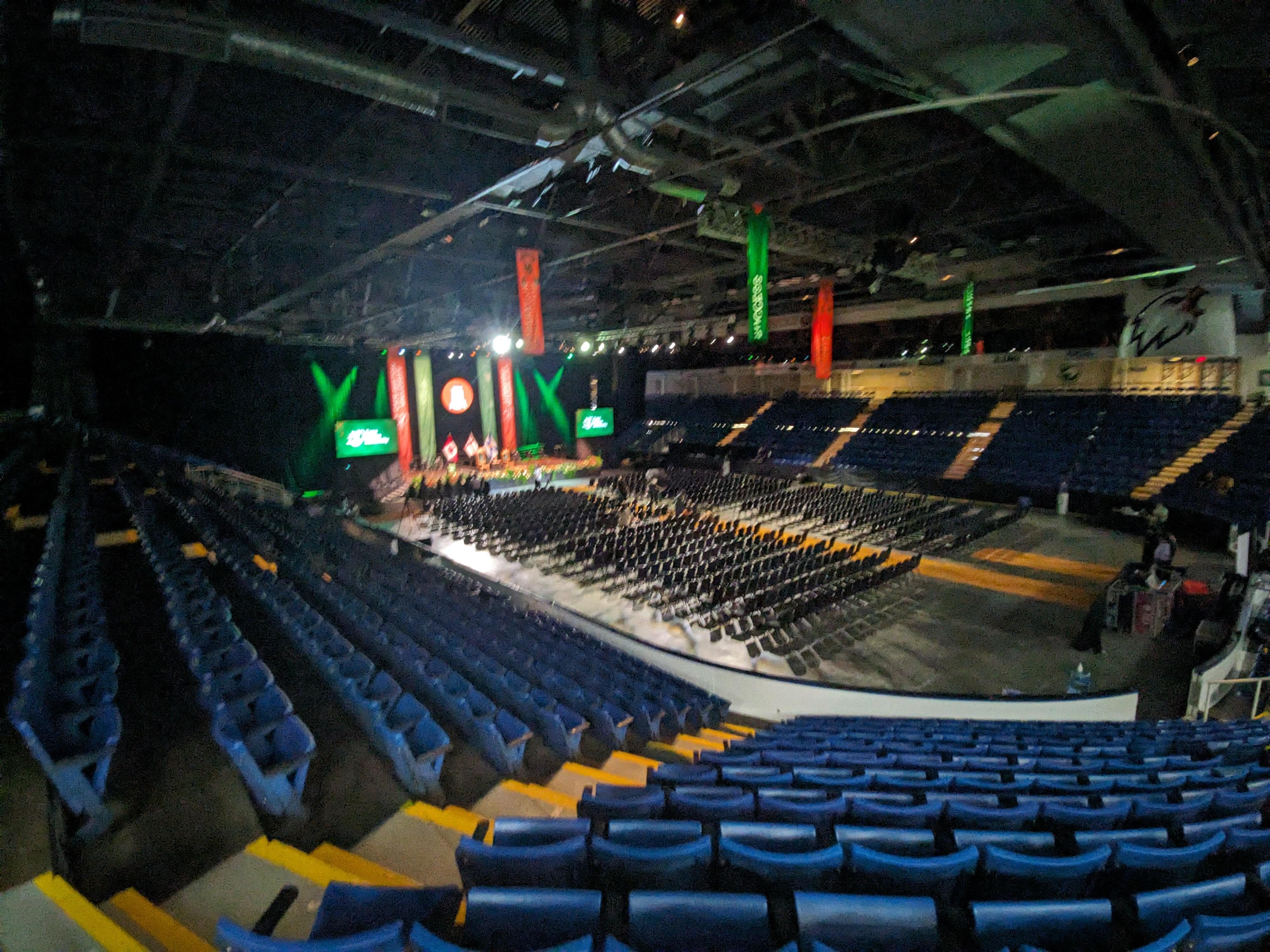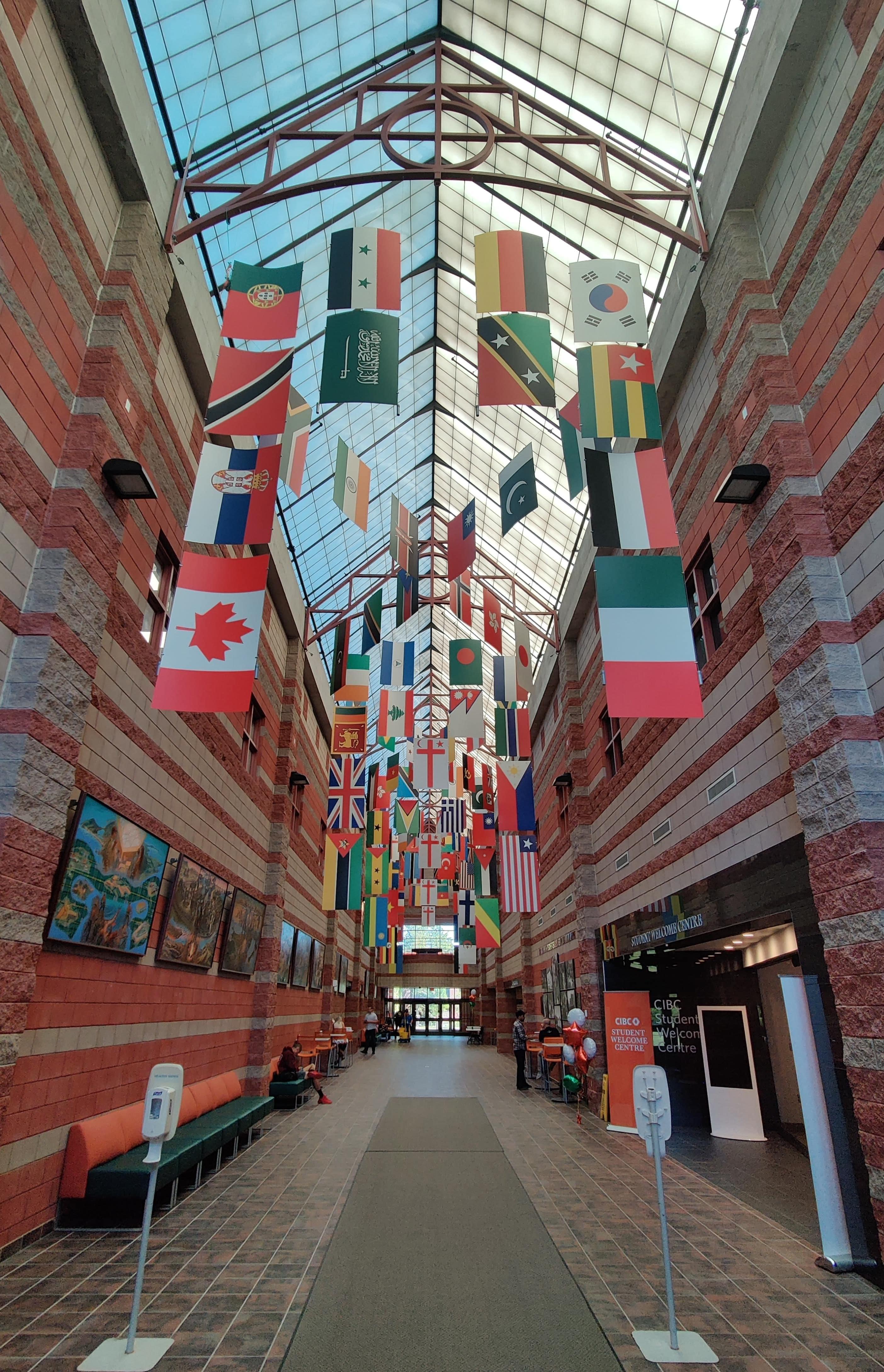What Students Say
Likes
- Faculties having PhD and knowledgeable.
- 2-year course duration of post-baccalaureate courses.
- Fun activities that the student union held almost every month.
Dislikes
- Classes being conducted in movie theatres.
- Lack of foreign student diversities. Most people were from India.
- University considers post-baccalaureate courses as money making machines and does not offer enough facilities.
Colleges Where I Was Accepted
Reason for choosing my college
- I had chosen Cape Breton University in Sydney, Nova Scotia, because I wanted to learn about Business Analytics domain and during that period only a handful of universities were offering the courses in this field.
- Also, being an above-average student in my academics in India, choosing a university with multi-diverse students seemed helpful in learning with different-minded people.
Required Exams for Admission
Scholarship Received
Required Documents For Admission
CV |
SOP |
LOR |
Scholarship Essay
Tips to enhance your application
- Honest opinion on studying, why to choose a specific course, previous academic achievements (if any), marks in all the major milestones (i.e. 10th, 12th and Bachelor's), and Intentions on how a student will apply their skills learned in the course in their future career.
Admission Experience
- I had chosen Cape Breton University in Sydney, Nova Scotia, Canada, due to two main reasons: First being Canada and its immigration and second being the 2-year duration course. Getting a 2-year-long course helped me gain enough knowledge in Business Analytics and learn about this domain, as I came from another background. Cape Breton university's reputation is decent if I consider other lists of universities in Canada. However, the faculties mostly have or are pursuing PhDs.
- The faculties are local as well as international and this aided in the learning experiences. Although the university's location is in a remote place, living in Sydney was a fabulous experience, as I got a chance to get close to nature, a quiet environment and beautiful scenery. Career opportunities in Sydney do not exist, as there are no corporations set up in this remote location.
- Students have to either move to Halifax or any other province in search of jobs. Overall, my experience at this university was great but it could have been better as the classes were all conducted in a movie theatre. Yes! You heard that right, Cineplex movie theatre. The university claims that they don't have enough seating capacity on campus; however, most of the classrooms were empty on campus. It was just the fact that management did not want to split our batch into smaller sets of students that would fit into a classroom.
- The strength of 1 batch of class was nearly 50-70 students and campus classroom holding capacity was 20–25 students per classroom. This was one of the biggest downsides of studying at Cape Breton University and this setup still goes to date.
Class Schedule
- There are 4 classes in each week and scheduling depends on the student if he/she wants to take 1 class each day or 2 classes on a single day based on availability. Most students take 2 classes each day. Class duration is 3 hours and average strength was 60.
- Most people were either from Gujarat, Punjab or the south. However, there were also students from the Philippines, Nigeria, Peru, UAE and Mexico. Professor gives out assignments to be completed before deadlines and most of them are easy 10-question online assignments.
Faculty
- Faculty-to-student ratio is very crazy; the reason being there are 60 students per batch on average. However, faculties can be reached out to by scheduling appointments with them. In my experience, one of the best faculty was Prof. Enayat Rajabi. His method of teaching and attention in the class makes learning more interactive.
- If a student is interested in getting a job, he/she has to be on the professor's 'favorite list,' and only then might the professor entertain their request to give references. However, mostly students have to reach out to companies themselves to get a job.
Campus Life
- My university only has one campus. The facilities on the campus are great to use, e.g. Library, gym, tennis court, game room, etc. University also holds regular events to maintain student interaction.
- The initial event week starts with "Week of Welcome," where there are multiple information sessions, campus tours, and live music. If someone is interested in sports, the campus offers various sports—you name it!. Apart from academics, the university also encourages students to pursue extracurricular activities like paper presentations, learning new skills and so on.
Part Time Jobs
- Students prefer working in construction, fast-food or retail stores. Getting a job is difficult unless you have a reference from the senior/colleague already working in the company or the student is extra talented (which is very rare in terms of Canada).
- The pay is the minimum wage of the province decided by the government. Few employers may offer a slightly better wage but it all depends on them.
- Getting a TA/RA/DA role depends on the student's previous working experience, the professor's "favorite list," and the student's ability to convince the professor why they would fit. The typical pay is just above the minimum wage.
- The university conducts job fairs and getting an internship/job via that is very difficult, as the job-to-application ratio is 1:50. Other on-campus jobs are posted on the university website on a regular basis. During my time of study, the legal hours of work allowed were 40 hours/week. This rule depends on the Canadian government.
Placement
- Most students, after completing their studies, secure either a full-time job in a reputable company within 6-7 months or continue with their odd job in full-time status, e.g., Walmart associate, fast-food restaurant Barista, etc., until they get a permanent residency.
- It is difficult to get a salary range at this moment and it all depends on the job location, nature of job and position. Students typically find a job via Linkedin, Indeed.ca, networking events, job fair or recommendations. The Canadian education system does not conduct placements like the Indian education system; the student has to do their due diligence to get a job.
Accommodation
- Most students find accommodations via whatsapp groups, facebook marketplace or Kijiji.ca. However, there are many scams and one should always deal by going in person and verifying the authenticity. Students live in Sydney, Glace Bay, New waterford and all the neighboring areas. Connectivity is via the public transit buses only, which are scheduled as 1 bus each hour on average.






